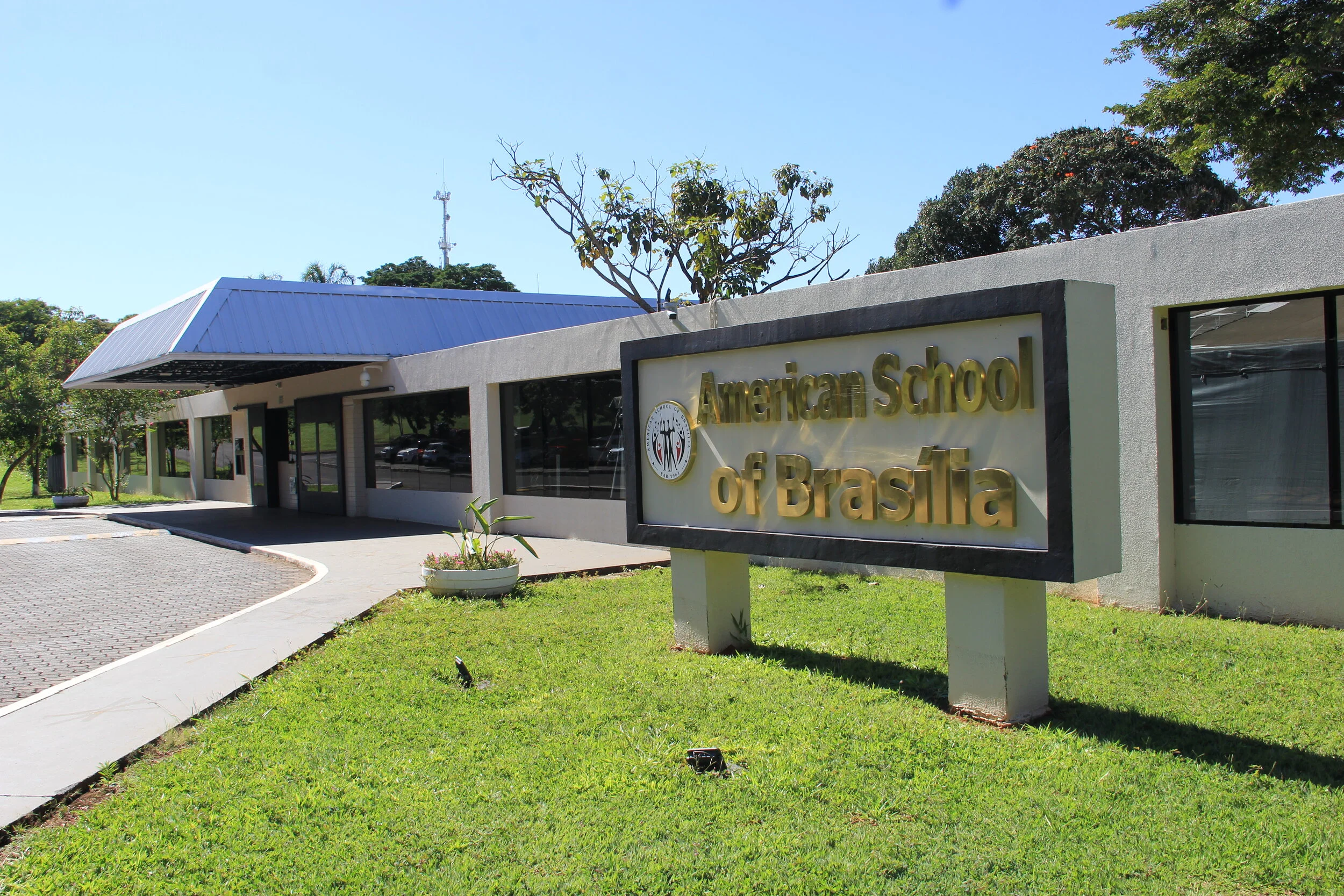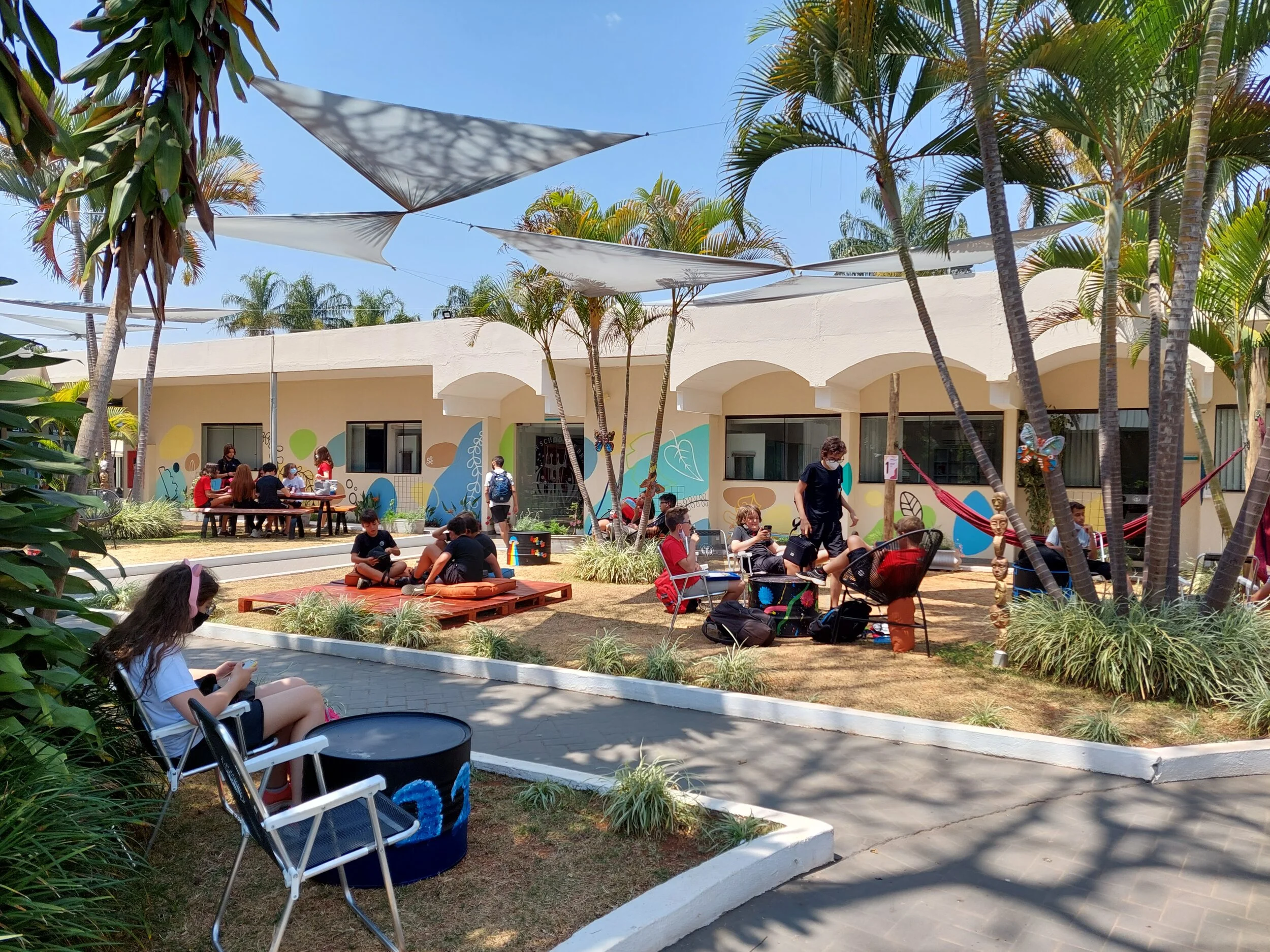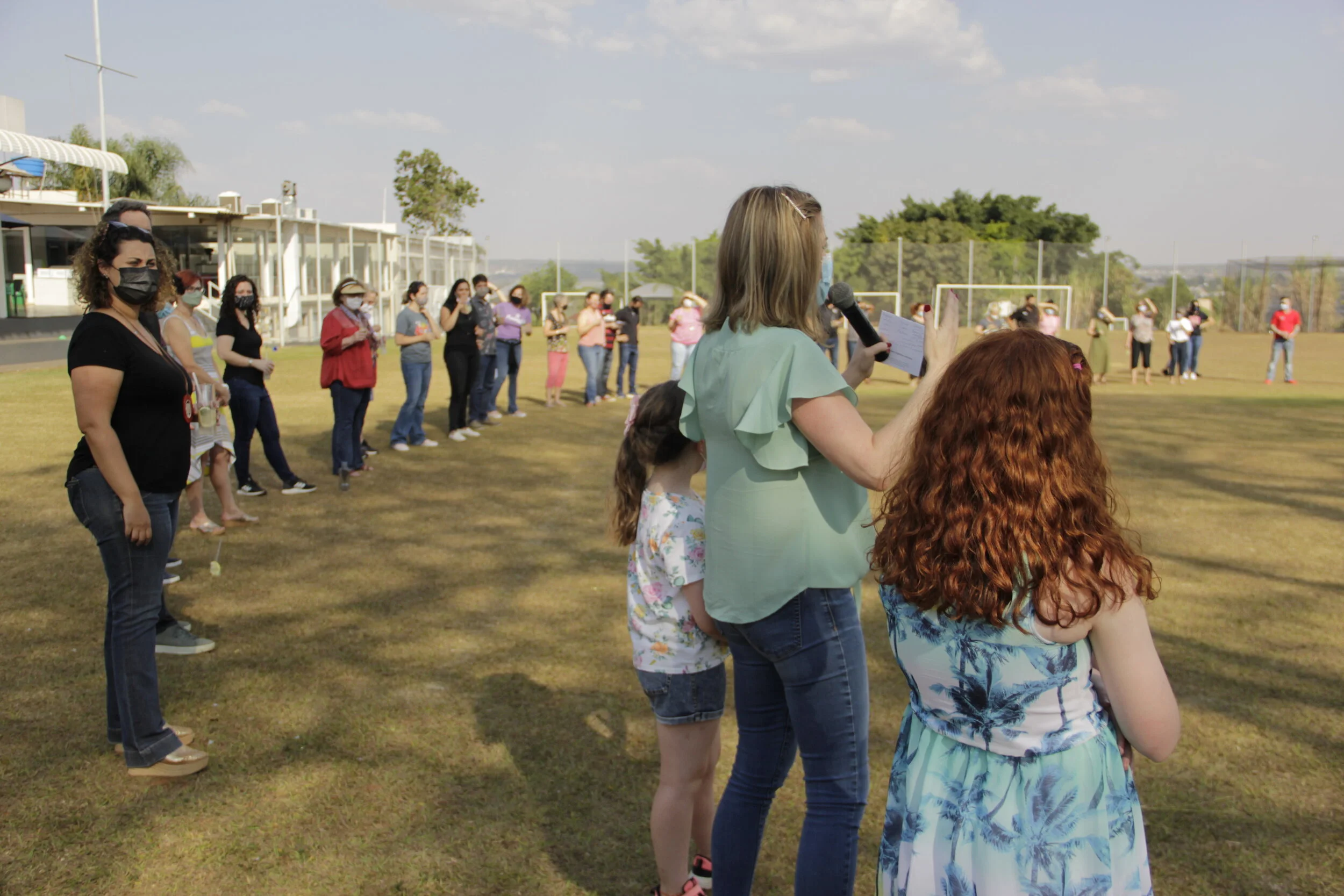Grace McCallum
Grace McCallum is the Director of the American School of Brasilia (EAB) and a well-traveled educator with a passion for innovation and building school communities. While celebrating her schools’ 60th anniversary this year, she shares her vision for EAB and looks ahead to how the school can remain an innovation leader in the years to come.
Grace, before we talk about the incredible success story of your school, we would like to begin on a personal note. Changing jobs and moving countries in the middle of a pandemic is no small feat. What drove you to stick to the plans and pack your bags in Frankfurt while the rest of the world went into lockdown?
I love the director’s role for the potential of innovation, creativity, and strategic thinking. I had the opportunity to be in a director's role previously but as an interim. I loved it and wanted to explore this position entirely. We flew to Brazil just a month before the pandemic hit for the interview and I felt straight away that this school was special. It had to be a fantastic place to leave FIS and move to Brazil and bring our children! I signed the contract just weeks before the first lockdown, and like everyone else, we thought this would be over in a few months. But a year later, Covid was at its peak, and friends, family, and colleagues began to encourage us to stay in Frankfurt rather than come to Brazil. However, our family always says, "we can do hard things.” It was also important to us to follow through with our commitment to this incredible community. So it was never an option in our minds to not come. We made a commitment to the school community we are part of now. So we followed through, and I am glad we did. We love this school, and we love this country.
Prior to your arrival in Brazil, you already made contact with your new staff and families during your transition week. You built trust and created opportunities for the community to get to know you way before you started your new position.
I feel it’s something important for directors to do. Outside of my regular role as a school leader, I coach other principals or aspiring principals. It’s something I feel passionate about. I always encourage new leaders to connect early and often. So I actually met with everyone from my new community in one-on-one meetings starting back in November 2020. I met with every faculty and staff member for 30 minutes. I had 120 personal meetings between November and April and then took part in the official transition week organized by the school and the board of directors. In my meetings, I asked all 120 people the same five questions. It allowed me to gather data, and I created a data matrix to get that balcony view of EAB. As a director, it is a huge responsibility to care for a school community. So I approached it almost like an anthropologist trying to find out what the community is all about, where we do well, and opportunities to grow.
Previously in your career, you moved from Canada to China, from China to Germany, and most recently from Germany to Brazil. How much has relationship building become part of your educational philosophy?
Relationships are everything. When you go to a new place as a school leader, you usually think about areas where you have the vision to move the school forward in teaching and learning. However, I really believe that none of that will matter if you don’t feel the pulse of the culture. If you don’t understand what makes the organization tick. If you don’t take the time to understand the psychology of an organization, any change you might want to put in place will not be successful. So for me, talking to parents, talking to students and all 120 faculty and staff, and asking the right questions to unpack the organization’s structure was the highest priority. It came before reading policy manuals and archived meeting agendas. I still have so much to learn, but I came in already knowing where some of the tensions were, the successes that should be celebrated and honored, and what systems needed refining before we could launch new innovative practices.
You served in leadership positions in well-established schools in Beijing and Frankfurt. What kind of leadership do you feel is required at your new school in Brasilia?
I believe that a school leader needs to serve the school community in what it needs at that point in time. I think some leaders have their own leadership style that isn't malleable. This never seems to be a good fit! I think being a leader requires you to be agile and chameleon-like. Leaders need to adapt to what the community needs them to do. At that specific moment in the school's journey. Right now, what our school needs is a community builder, a marketer, and a strong communicator. The school needs me to lead a reconnecting of our community, steady the ship in these turbulent times, and ensure that our foundation is rock solid to build up the new things to come and to market and communicate all of this. On top of that, the next big thing we are planning at EAB is reimagining our learning spaces. We are thinking about facilities, our master plan, and how that fits in with our vision for innovative learning. Most importantly, how this fits in with what students need to drive their learning. So I hope to be a community builder, a reconnector, a marketer, a communicator, and someone who knows how to get the community on board for big changes. We are 60 years old this year, and we are turning the page on a whole new chapter of our school. We are honoring our legacy to innovate for the future. I'm excited to be a part of this evolution.
What innovative practices would you like to see implemented at EAB?
My big vision for the school is establishing cultures of coaching. Coaching is something we talk about often in educational institutions but something a few of us do deeply. For me, developing a culture of coaching includes many aspects, such as peer coaching, outside coaches, leadership coaches, and involving all parts of the community. I have seen what impact an authentic culture of coaching can have at my previous schools, and that’s something I would like to bring to EAB. I also would like to focus on personalized learning for students. Not in a traditional way, but in the way of using data to drive authentic differentiation for each student. Authentically using data to create personalized learning plans for each student that they have agency in is a game-changer in education. It's important to me that our students have opportunities to explore what they are interested in and have a high level of support based on their individual needs.
Pioneering Schools is all about exploring innovation in learning. Where do you see opportunities to move learning forward, bearing in mind that schools around the world, including EAB, are still affected by the pandemic?
My favorite question is; how are we leveraging what we’ve learned through the pandemic? It feels like schools are just waiting to go back to normal. I think if we simply revert to the pre-pandemic status quo, it would be such a wasted opportunity. I think we should be looking at the way we did things differently during the pandemic and asking ourselves questions like, "Why do high school students need to come to school at 8 am when research clearly shows they learn best later in the day. Why can we not have everyone learning at their own pace by making subjects available asynchronously? Why can't we give students the option to learn in a way that suits their needs?’’ There are so many things we can do more creatively now that we are not as scared of change. We had to change all our schedules and approaches during the pandemic; we had to experiment with on and off days and create asynchronous content. Why are we so eager to go back to the 8 am - 3 pm model? Education is changing, and we need to embrace it. One of the favorite quotes is from George Couros, and it is: You might hate change, but you'll dislike being irrelevant even more.
Your school is celebrating its 60th anniversary this year and can look back at a long success story as a leading international school in Brazil. What’s next for EAB?
Every school needs to change and adapting. The worst thing that could happen would be for us to assume that we can rest on our laurels because we are the most established school in Brasilia. We have a beautiful history and a respected legacy. However, now it's our goal to honor our legacy to innovate for the future. We may be the oldest school in Brasilia, but we are far from old-fashioned! We are constantly innovating and leading education in Brasilia. From our social-emotional curriculum to unique service-learning opportunities to 3D printers in our design labs, we are always thinking about what our students need next. We owe it to our students to continuously be thinking about how their world is changing. Our master plan for the renovation of many of our current buildings is beginning this year, and we couldn't be more excited to be leading the reimagination of learning spaces. Our mission is to be bold in vision. So looking ahead to the next 60 years, we will continue to influence education in Brazil by remaining innovative, being risk-takers, and dreaming big with our students.
Thank you, Grace. For more information about the pioneering work at The American School of Brasilia visit www.eabdf.br
Keep pioneering and stay in touch!







